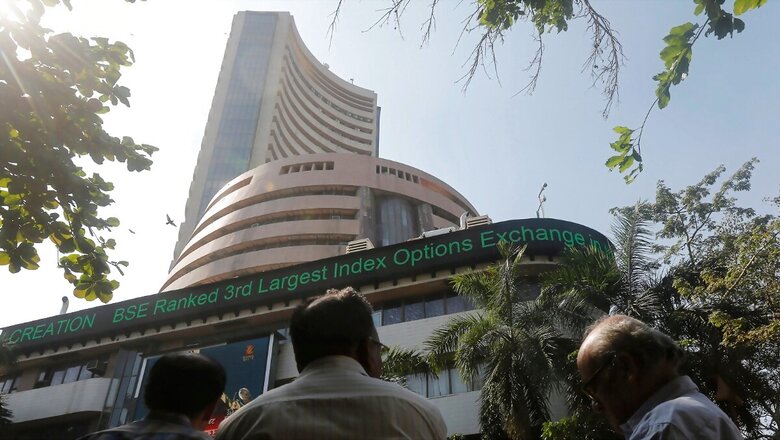
views
The domestic equities market on Tuesday witnessed a significant sell-off. The stock market’s disappointment during the Budget 2024-25 comes even as Finance Minister Nirmala Sitharaman hiked short-term and long-term capital gains tax, apart from increasing securities transaction tax on F&O.
The Sensex on Tuesday opened higher before the Budget 2024-25, but started losing ground even as the Budget Speech 2024-25 came closer. During the Budget Speech, the Sensex started falling and tumbled as much as nearly 850 points before recovering it. Finally, the BSE Sensex ended the day marginally lower by 73.04 points to 80,429.04, while the NSE Nifty fell 30.20 points to close at 24,479.05.
Why Did Markets Fall Today?
Presenting the Budget for 2024-25, Finance Minister Nirmala Sitharaman announced a hike in STT (securities transaction tax) on F&O (futures and options) securities by 0.02 per cent and 0.1 per cent.
She also hiked the long-term capital gains (LTCG) tax to 12.5 per cent from 10 per cent, while short-term capital gains (STCG) tax on some assets would be 20 per cent.
This means, if you sell listed securities such as equity shares and units of equity-oriented mutual funds (where equity exposure is above 65 per cent of the assets) before a year, then you will be charged short-term capital gains (STCG) tax at 15 per cent.
Kirang Gandhi, personal financial mentor, said, “The 2024 Budget has increased the short-term capital gains (STCG) tax to 20% and the long-term capital gains (LTCG) tax to 12.5%. This has caused some market instability as investors react to the higher taxes. While the goal is to raise more revenue, these changes might discourage short-term trading and make long-term investments more attractive, potentially changing how the market behaves in the coming months.”
However, he also said the government plans to raise capital gains exemption limit on certain financial assets to Rs 1.25 lakh per year for middle and upper middle class.
Income receipt on share buyback will be taxed in the hands of recipients, Sitharaman added.
Which Companies Fall the Most, Which Companies Gain?
Larsen and Toubro (L&T), Bajaj Finance, SBI, Axis Bank and HDFC Bank declined the most falling up to 3.10 per cent. However, Titan, ITC, Adani Ports, NTPC and Infosys gained as much as 6.63 per cent.
Vinod Nair, head of research, Geojit Financial Services, said, “Domestic investors had high expectations from the budget to increasing revenue and capital expenditure. However, the narrative is mixed, by curtailing expenditure while attaining fiscal prudence, which can limit further growth. During the year, the market has fairly factored in ongoing growth and trading at a high premium. To sustain that gap, corporate growth has to be maintained, which is experiencing a slowdown as per the ongoing Q1 result.”

















Comments
0 comment